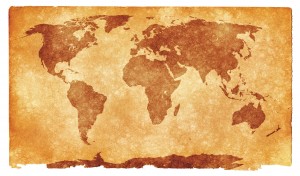Inspiration:
Personal transformation can and does have global effects. As we go, so goes the world, for the world is us. The revolution that will save the world is ultimately a personal one. –Marianne Williamson
Finding the Blessing
(The Brewster, Massachusetts) church was built by wealthy merchants and sea captains in the 18th century. The walls of the fellowship hall are lined with pictures of sailing ships, which they were proud to display.A few years ago, one congregant asked what might seem to be an obvious question: “What were those ships carrying?” They took the question seriously, did their research, and found that many of those ships had been slavers and that, in fact, a good bit of the money that had built that beautiful church had come from the slave trade.
Knowing that history was challenging for them, especially for the few descendants of those captains who were still members. But it proved to be a blessing. They were able to reclaim their history and create a narrative about how that congregation had grown, had struggled to know what they were called to do and been transformed in the process. It was a narrative that acknowledged their past but did not leave them trapped in it.
Unitarian Universalists affirm as one of our seven principles “respect for the interdependent web of all existence of which we are a part.” We normally understand that statement as an affirmation of our part in the natural world, and it supports our work for environmental justice. But the interdependent web is also geographical. We are a part of a world community. The web does not stop at our borders, no matter how tall the fences we may build.
And the interdependent web also exists in time. It connects us to our history, to the history of our nations and to a future. This is a faith of both memory and hope.
by Bill Sinkford, Senior Minister, First Unitarian Church Of Portland, Oregon, Former President of the UUA TO READ MORE


I’m so glad I “read more” after Bill Sinkford’s excerpt. As someone who also experienced misogi I felt so close to him in spirit as I read his words about Japan. It was as if I was there with him. I even empathized with his cold and his loincloth, even though, as I recall, we wore white robes with a scarf (which I still have) around our heads.